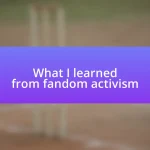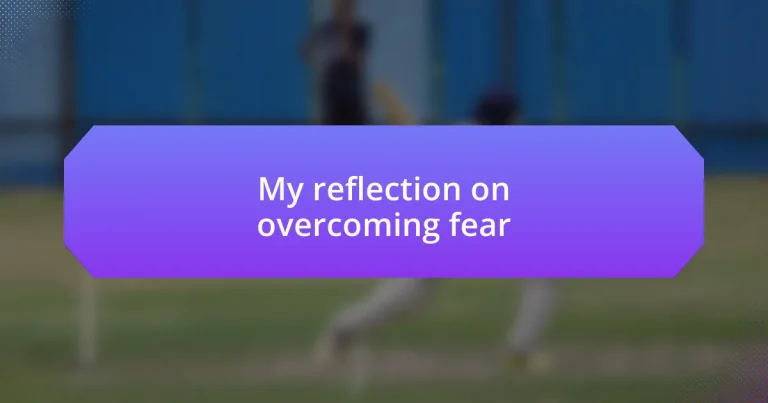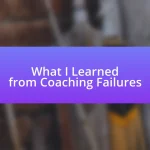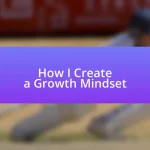Key takeaways:
- Fear is a primal emotion that often stems from the unknown; acknowledging it can lead to self-improvement and personal growth.
- Identifying personal fears and their triggers is crucial for managing them and can empower individuals to overcome challenges.
- Developing coping strategies, such as mindfulness and setting small goals, can effectively combat fear and build confidence.
- Engaging in exposure activities and reflecting on progress can transform fear into strength and resilience, showcasing personal growth.
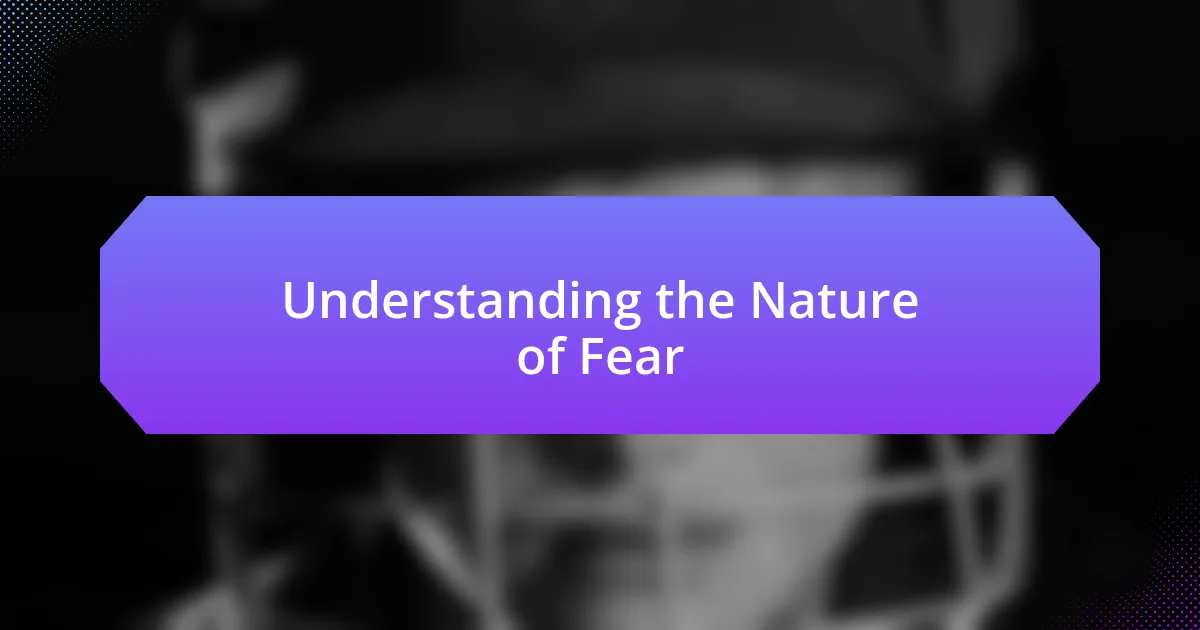
Understanding the Nature of Fear
Fear is a primal emotion, deeply rooted in our evolutionary history. I remember the first time I faced a fear of public speaking. The pounding of my heart and the sweat on my palms reminded me that our bodies react instinctively to perceived danger, even in situations where there’s no real threat.
As I delved deeper into my fear, I began to realize that it often stems from the unknown. Have you ever felt a knot in your stomach before trying something new? I have, and it’s a powerful reminder that fear can create barriers that hold us back from growth and discovery. By acknowledging this, I learned to reframe my thinking—what felt like a roadblock turned into an opportunity for self-improvement.
Understanding fear means embracing it as a part of our humanity. I’ve learned that when I accept my fear rather than resist it, it loses some of its power. How often do we allow fear to dictate our choices? Reflecting on my own experiences, I see now that fear can be a signpost guiding me toward the areas in my life that need courage and change.
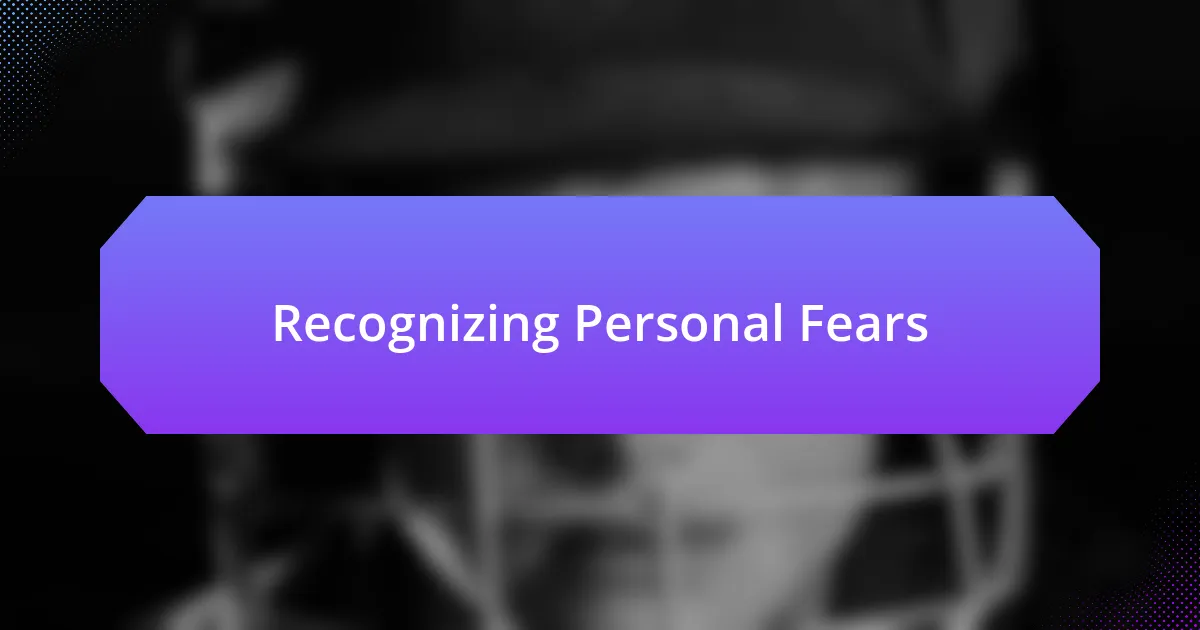
Recognizing Personal Fears
Recognizing personal fears can be a transformative experience. I remember the moment I confronted my fear of failure; it was a chilling step that initially made me hesitate. When I finally put my dream of launching a small business on hold due to fear, I realized that this emotion was shaping my decisions more than I thought. Once I took the time to identify what scared me, I unlocked the potential to challenge those fears meaningfully.
Here are some common personal fears to consider:
- Fear of rejection leading to avoidance of social situations.
- Fear of the unknown that keeps us from pursuing new experiences.
- Fear of losing control, which often manifests in anxiety about everyday tasks.
- Fear of failure that prevents us from trying new opportunities.
- Fear of inadequacy, which can hinder our confidence in skills or abilities.
Acknowledging these fears can be the first step toward overcoming them. Each fear holds a lesson, waiting for us to discover its significance and learn from it, which I have found to be incredibly empowering.
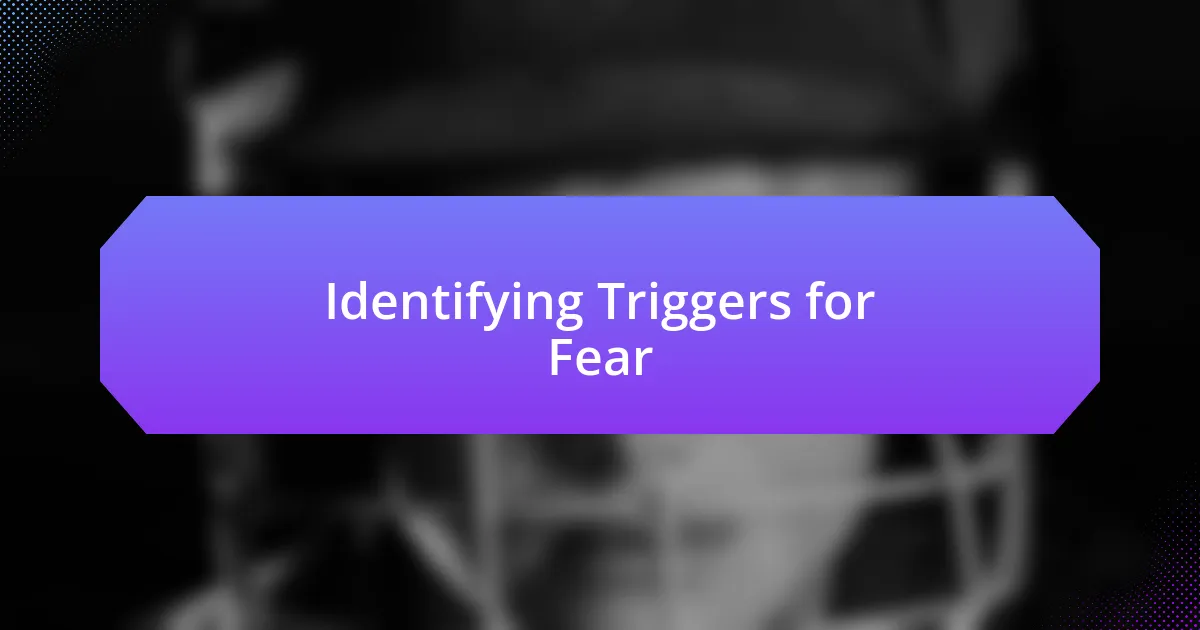
Identifying Triggers for Fear
Identifying triggers for fear is a crucial step in overcoming it. I recall a time when public speaking sent my heart racing. By pinpointing that my fear stemmed from the possibility of judgment, I recognized how important it was to prepare thoroughly and practice—this shifted my focus from what could go wrong to what I needed to do to be ready.
Sometimes, triggers can be subtle. For instance, the smell of certain foods can bring back memories of past failures. I discovered this during a family dinner, where the aroma of burnt toast reminded me of a project that had not gone well. This realization prompted me to reflect on how these anchors can unexpectedly invoke fear, leading me to develop strategies to neutralize them.
Keeping a fear diary has been a game-changer for me. Writing down situations that evoke fear helps to spotlight patterns. I once noticed that stressful emails from my boss would trigger a sense of dread in me. By understanding that it was not the emails themselves but my anxiety about the unknown outcomes that frightened me, I learned to approach these situations with more confidence rather than avoidance.
| Trigger Type | Example |
|---|---|
| Situational | Public speaking |
| Emotional | Past failures |
| Environmental | Specific smells or sounds |
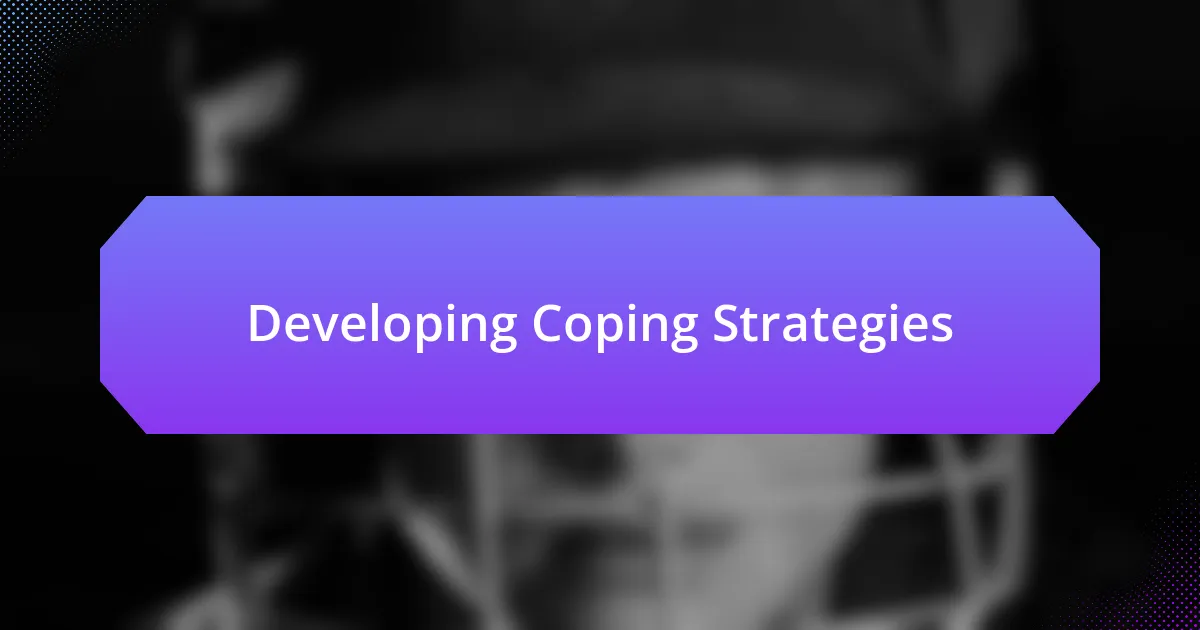
Developing Coping Strategies
Developing coping strategies is essential once you’ve identified your fear triggers. For me, one effective approach has been mindfulness meditation. I first tried it in a yoga class, where I discovered how focusing on my breath helped ground me during moments of anxiety. By regularly practicing mindfulness, I learned to observe my fears without judgment, which made them feel less overwhelming.
Moreover, creating a support network played a pivotal role in my journey. There are times I felt alone in my fear, but sharing my experiences with close friends has often brought about surprising encouragement. By simply vocalizing my fears, I found not only understanding but practical tips from others who faced similar challenges—how powerful is that relief?
I also found that setting small, achievable goals works wonders. The thought of tackling a major fear can paralyze you, but breaking it down into smaller steps makes it manageable. For example, when I was terrified of networking events, I committed to starting a conversation with just one person. Each small victory built my confidence, gradually transforming my fear into a sense of accomplishment. Have you tried this method? You might be amazed at how each step forward can reshape your perspective.
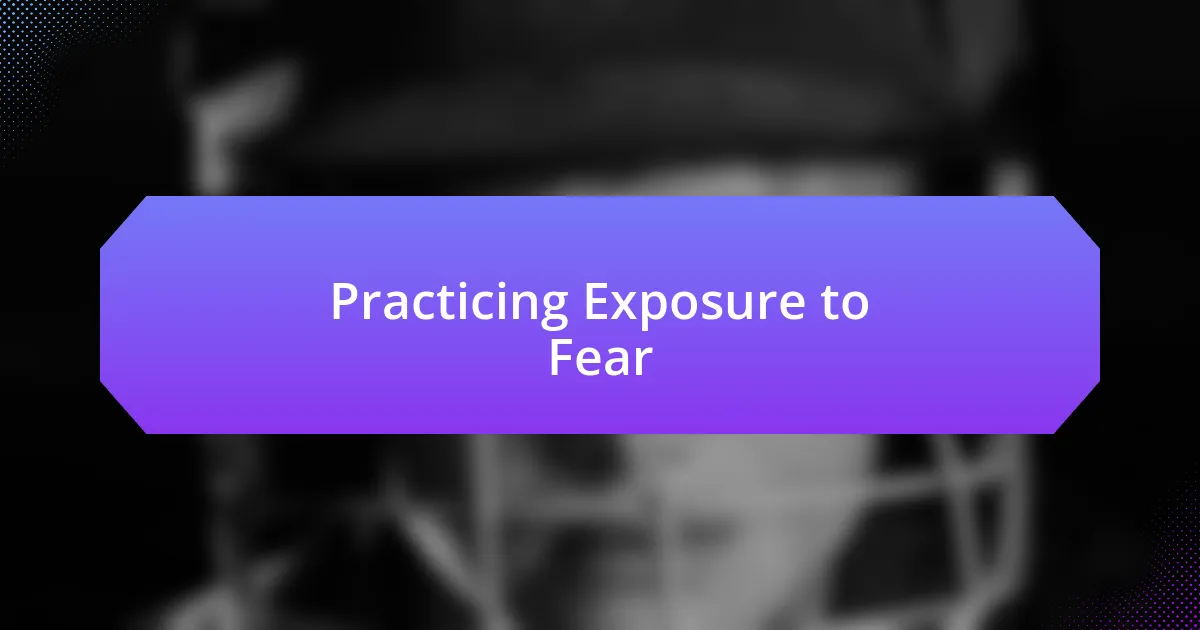
Practicing Exposure to Fear
Facing your fears through exposure has been one of the most transformative experiences for me. When I first participated in public speaking workshops, my heart raced at the thought of presenting in front of a crowd. However, each time I stood in front of others, even just for a few minutes, I felt the tight grip of fear loosening, as if I were slowly peeling away layers of an old, uncomfortable skin. How often have you hesitated to voice your thoughts simply because of fear?
In my journey, I’ve found that creating exposure opportunities in controlled environments can make a world of difference. For instance, I decided to start sharing my thoughts in small group discussions. Initially, the dread was palpable, but each time I spoke, I experienced a rush of relief and pride afterward. This taught me that fear can often be more paralyzing in anticipation than in reality.
Another strategy that worked for me involved visualizing the fear beforehand. I vividly remember preparing for a presentation by imagining every possible scenario—what could go wrong, how I’d respond, and ultimately, what I would gain from it. This mental rehearsal transformed my anxiety into excitement. Have you ever noticed how anticipating the worst can sometimes amplify your fear rather than diminish it? It’s a powerful reminder that confronting fear head-on can often reveal strengths you never knew existed.
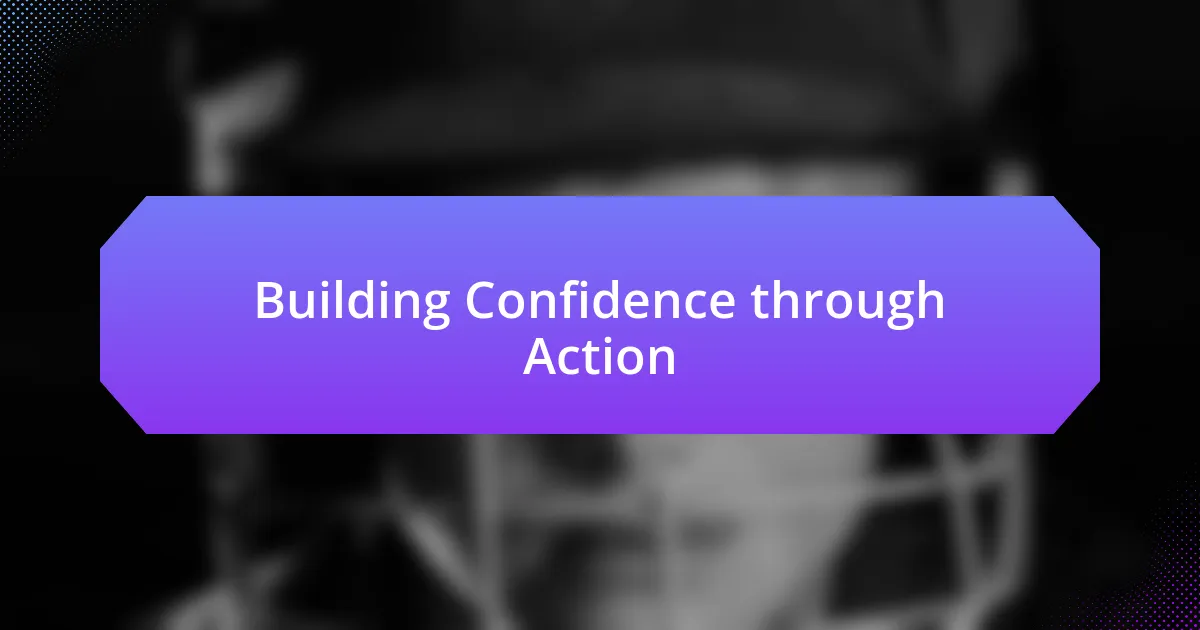
Building Confidence through Action
Taking action has been a game changer for my confidence. I remember the first time I signed up for a local improv class. Initially, the thought of improvising on stage filled me with dread, but each laugh and shared moment in those sessions gradually built a sense of assurance within me. Have you ever noticed how simply stepping into a situation can shift your mindset?
There was a time when I struggled to voice my opinions in team meetings. I decided to take small steps by preparing one thought to share each time. The first few times, my voice trembled, and I felt like everyone was judging me. But soon, I noticed how my colleagues responded positively—culminating in a newfound belief in my ideas. Isn’t it incredible how taking even the smallest step can ignite your self-worth?
Action creates momentum, and I’ve learned that it’s okay to start small. Participating in community events, such as volunteering, allowed me to connect with others and witness my capabilities in a supportive environment. It was liberating to realize that each small action contributed to a larger sense of belonging and self-assurance. When was the last time you stepped out of your comfort zone to discover new facets of yourself?
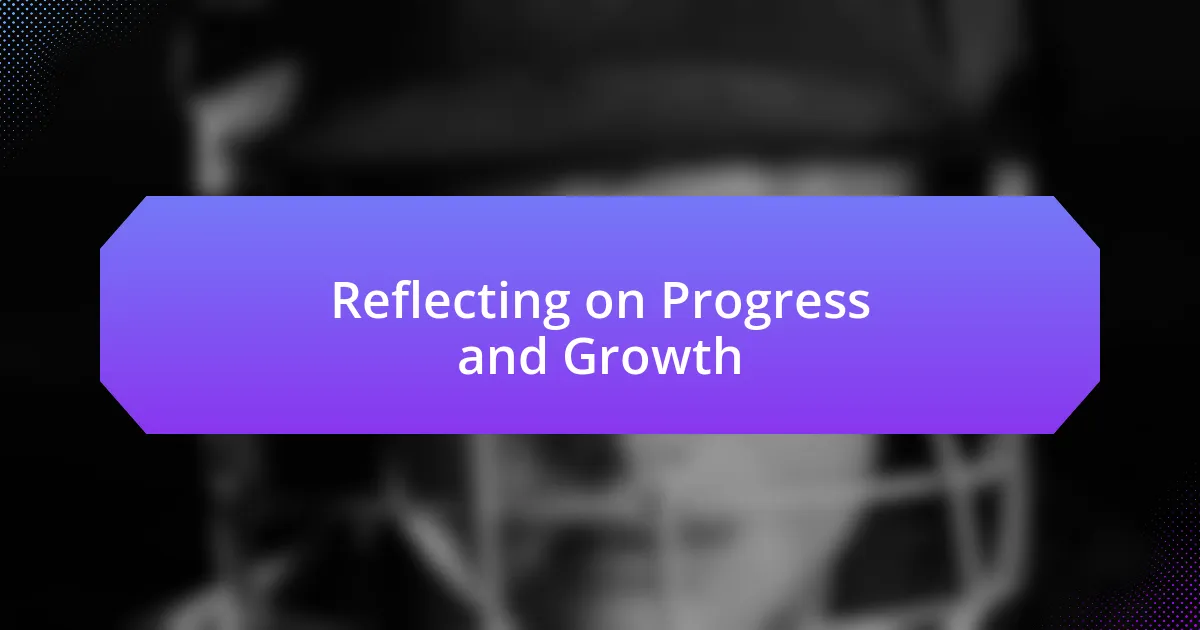
Reflecting on Progress and Growth
Reflecting on the progress I’ve made in overcoming fear reveals just how transformative it can be. I vividly remember the anxiety that gripped me whenever I faced a challenge. However, acknowledging those moments of discomfort not only made me realize how far I’ve come, but it also illuminated the strength I’ve cultivated along the way. Don’t you find it fascinating how fear can serve as a mirror, reflecting our deepest insecurities while simultaneously showcasing our resilience?
As I look back, I often surprise myself with the hurdles I’ve navigated. There was a time when public speaking felt insurmountable, sending waves of panic through me. Yet, after numerous practice sessions and positive feedback from friends, I began to see those terrifying moments as stepping stones rather than obstacles. Each experience added a layer of strength, reinforcing my belief that I could tackle whatever life threw at me. Isn’t it empowering to realize that growth often emerges from the very experiences we once avoided?
The journey of reflection has taught me that growth is often incremental and beautifully imperfect. I can recall a particularly challenging situation when I faced a fear of confrontation. Instead of shying away, I chose to engage in difficult conversations, which felt like climbing a mountain. Each time I spoke up, I felt my confidence swell, and with each encounter, I learned something new—not just about myself, but about the power of honest communication. Have you considered how engaging in uncomfortable dialogues could reshape your perspective on fear?






